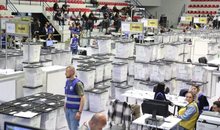
 Flash News
Flash News
Justice pardons Xhaçka, Special Appeal decides not to investigate former minister
Berisha evaluates OSCE report: They have ruined the elections
The Supreme Court returns Arbër Veliaj's appeal for retrial
Call Center raided in Tirana/One of the organizers and 6 employees in handcuffs
Fight with crowbars and gunfire in Tirana, police official reaction
"Unprecedented case in this Balkan country", Der Standard's 'Slap': Rama's victory, doubtful
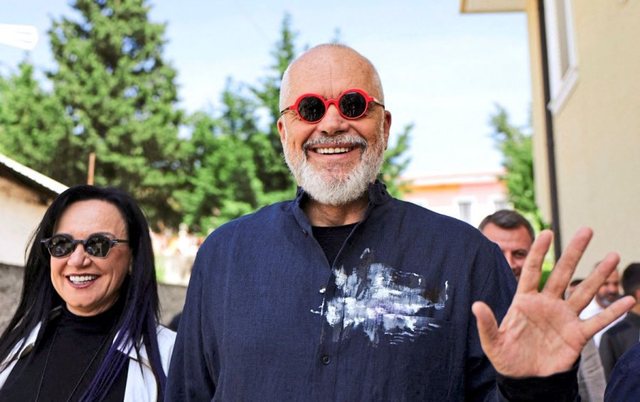
The elections in Albania have also resonated in other countries around the world, where many media outlets have reported.
One of them is the large Austrian newspaper, 'Der Standard', which has emphasized in its headline that Edi Rama's victory is doubtful.
“Albania’s Prime Minister, Rama, clearly wins the ‘dubious’ elections,” the newspaper writes.
In Albania, Prime Minister Edi Rama has won a landslide victory in parliamentary elections, securing a fourth term in office, an unprecedented feat in the Balkan country. With 94 percent of the vote counted, his Socialist Party (SP) came in with 52 percent of the vote, according to the Central Election Commission. The conservative Democratic Party (PD) of former Prime Minister Sali Berisha came in second with 34 percent.
Rama and his Socialists have improved their previous result of 49 percent and now have a comfortable majority to govern. This is expected to enable the 60-year-old to advance his goal of Albania joining the European Union by 2030 – although many experts consider this deadline to be overly optimistic.
OSCE expressed doubts about whether the elections were free
According to a television report, the Socialist Party (SP) is expected to win 82 of the 140 seats in parliament. The Democratic Party (DP) will have 51 seats. The final preliminary results are expected to be announced on Tuesday. However, international election observers, led by the Organization for Security and Cooperation in Europe (OSCE), expressed doubts about whether the elections were free from interference.
During the campaign, they said, there was a “use of public resources and institutional power by the ruling party.” Also, “many cases of pressure on state employees and other voters, as well as cases of intimidation,” were reported.
Tourist boom and corruption
Albania has been a member of NATO since 2009 and has been negotiating membership with the EU for about three years – and has had official candidate status since 2014. Rama has been in power since 2013 and entered these elections as the frontrunner. His success rests in part on an influential network he has built up during his twelve years in government. But he can also point to some successes. The economy is doing well thanks to trade with the EU and a tourism boom, and according to the World Bank, it has grown faster than other Balkan countries in recent years.
However, the fact that the opposition is divided has also played in his favor. Opponents accuse him of governing the country through a clientelistic system and of doing little to fight corruption and unemployment. Rama denies these accusations. However, since he came to power, hundreds of thousands of Albanians have emigrated in search of better prospects abroad.
Tough approach against the opposition
Young voters in particular reject both Rama and his opponent Berisha, who have dominated Albanian politics in various roles in a once isolated country since the end of communism in 1990/1991. Berisha became Albania's first freely elected president in 1992 and was prime minister from 2005 to 2013.
Rama is credited with a tough approach towards the opposition, including the 80-year-old Berisha. He himself has faced a series of scandals. Among them is the arrest this year of his ally Erion Veliaj, the mayor of Tirana, on charges of corruption and money laundering. Berisha has also been accused of corruption, which he – like Veliaj – denies.
Experts see widespread corruption as one of the country's biggest problems. It is fueled by criminal gangs that earn billions of euros from drug and arms trade abroad, which they then bring back to Albania for money laundering.
Latest news




Elections in Albania, DW: Maintaining power through dubious means?
2025-05-14 15:43:10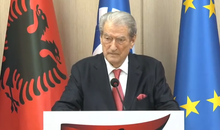

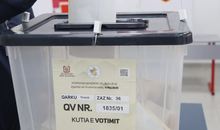
The US should not recognize the rigged elections in Albania
2025-05-14 15:18:14
Tension in CEAZ no. 31 in Tirana, vote counting suspended after clashes
2025-05-14 15:13:32

Berisha evaluates OSCE report: They have ruined the elections
2025-05-14 14:45:11
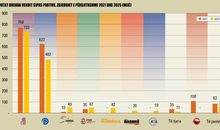

SPAK and BKH action in Shkodra, some escorted for electoral crimes
2025-05-14 14:05:26
This type of food can increase the risk of a deadly disease
2025-05-14 13:54:51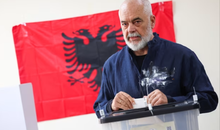
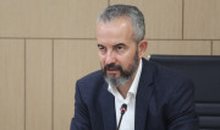

EU adopts new sanctions package against Russia
2025-05-14 13:30:51
Albanians' spending on private education reached 200 million euros in a decade
2025-05-14 13:20:22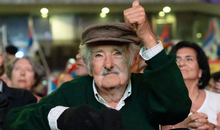
The poorest president in the world passes away
2025-05-14 13:10:33
Australia, death toll from melioidosis outbreak in Queensland rises to over 30
2025-05-14 13:01:07
The Supreme Court returns Arbër Veliaj's appeal for retrial
2025-05-14 12:52:25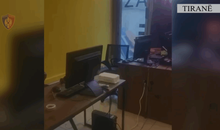
Call Center raided in Tirana/One of the organizers and 6 employees in handcuffs
2025-05-14 12:40:42
Kidnapping and threats in Astir, 29-year-old arrested
2025-05-14 12:34:57
Free and fair? Albania's elections reflect a worrying global trend
2025-05-14 12:28:34
Facebook's Zegjineja also a Member of Parliament
2025-05-14 12:16:40
Diaspora vote, Nuri: Work done by patronage, strong shadows of suspicion
2025-05-14 12:07:33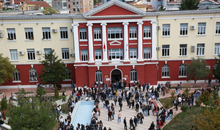

Fight with crowbars and gunfire in Tirana, police official reaction
2025-05-14 11:41:10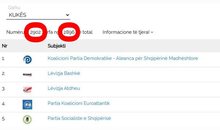
Fraud or manipulation?! Diaspora envelopes in Kukës are increasing by counting
2025-05-14 11:29:48

"We protect the vote", Berisha reveals the slogan of the May 16 protest
2025-05-14 11:11:02
Electoral crime/ SPAK publishes figures: 7 people arrested
2025-05-14 11:03:08
Accident at Tujani Stairs, two young people lose their lives
2025-05-14 10:51:01
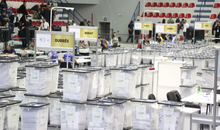
"SP gets 84 mandates", how did Open Data predict the results of May 11?
2025-05-14 10:28:28

Tirana Court Sentences Dan Hutra, Serial Killer of Women, to Life in Prison
2025-05-14 10:10:55
List of MPs that Elbasan is bringing to the Assembly
2025-05-14 10:01:46
"Zjerm" leads Albania to the Eurovision 2025 final
2025-05-14 09:50:29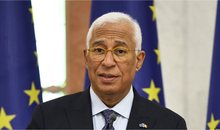

New parties open a window to Parliament for the first time
2025-05-14 09:31:45
Rama delivers a speech at Skanderbeg Square today
2025-05-14 09:31:34
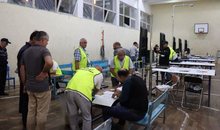
Shkëlqim Shehu wins mandate, most voted in Kukës from DP
2025-05-14 09:11:58
Votes for candidates, names from the open list entering the Assembly in Lezha
2025-05-14 09:03:23
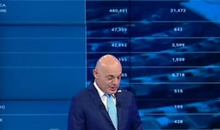
How was the vote stolen in London? Hasjani tells it live
2025-05-14 08:37:52
About 80 thousand envelopes from the diaspora are being counted, results so far
2025-05-14 08:30:37
Foreign exchange/ How much foreign currencies are bought and sold today
2025-05-14 08:13:53

4 cars collide in Tirana, after the accident the drivers fight with levers
2025-05-14 07:58:20
Weather forecast for today
2025-05-14 07:40:35
HOROSCOPE/ Here's what the stars have predicted for each sign
2025-05-14 07:20:57
Morning Post/ In 2 lines: What mattered yesterday in Albania
2025-05-14 07:06:32
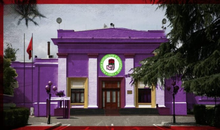
SP towards full legislative control, what does this mean for democracy?
2025-05-13 22:36:52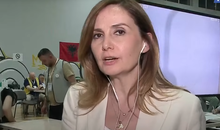

'Braçeee, Braçeee', the counter grabs the attention of CEAZ 5, laughter erupts
2025-05-13 21:55:09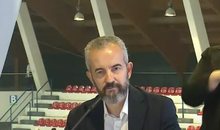
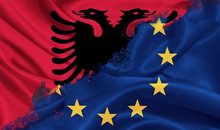
Tirana hosts European leaders on May 16, summit agenda revealed
2025-05-13 21:11:22
Counting closes in Vlora, PS gets 9 mandates, DP remains with 3
2025-05-13 20:59:14
DP representative at the CEC: SP votes in the diaspora, filled by the same hand
2025-05-13 20:50:55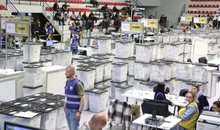

BIRN: European Union concerned about violation of electoral standards in Albania
2025-05-13 20:21:37
A house for a vote? Soft loans for the administration before the elections
2025-05-13 20:10:01
DP-ASHM secures two mandates in Kukës, Isuf Çelaj the most preferred voter
2025-05-13 20:01:22
Poll/ Were the May 11 elections fair?
2025-05-13 19:27:22
Elections 2025/ Counting of diaspora votes continues, results
2025-05-13 19:21:11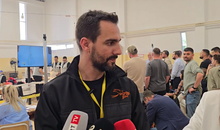
Lapaj: We are close to a mandate in Fier, we will take it from the SP
2025-05-13 19:17:33
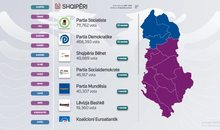
82 mandates, a reward for what?
2025-05-13 18:36:46
International cyber fraud network hit, seizures and checks in Tirana
2025-05-13 18:17:08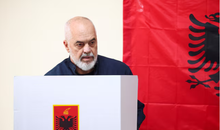








"Electronic Shkodra" takes to the Eurovision 2025 stage tonight
2025-05-13 16:02:42
Discover the 5 reasons to take folic acid even if you are not pregnant.
2025-05-13 15:45:50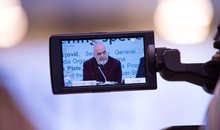
Lack of independent media undermined elections, observers say
2025-05-13 15:34:36
The first ballot boxes for candidates in Rrogozhina are being counted.
2025-05-13 15:31:42
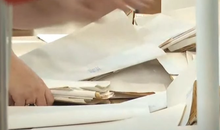


Albania has the most underdeveloped agro-industry in the region, Kosovo is first
2025-05-13 14:43:43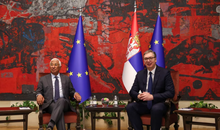


Preferential vote counting concludes in CEAZ 69, Skrapar
2025-05-13 14:23:43
The Director of the ARA appears before SPAK
2025-05-13 14:15:18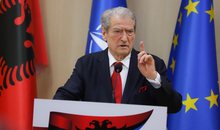
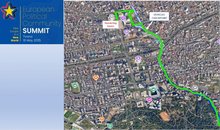

Berisha calls for protest on May 16: Elections were dictated by criminal gangs
2025-05-13 13:56:19
Aida Hajnaj is excluded from re-running for a second term as head of the BKH
2025-05-13 13:50:26
Accident near 9-year-old school in Korça, car hits student
2025-05-13 13:40:23

Lezha Court releases Elda Hoti's husband
2025-05-13 13:24:50
